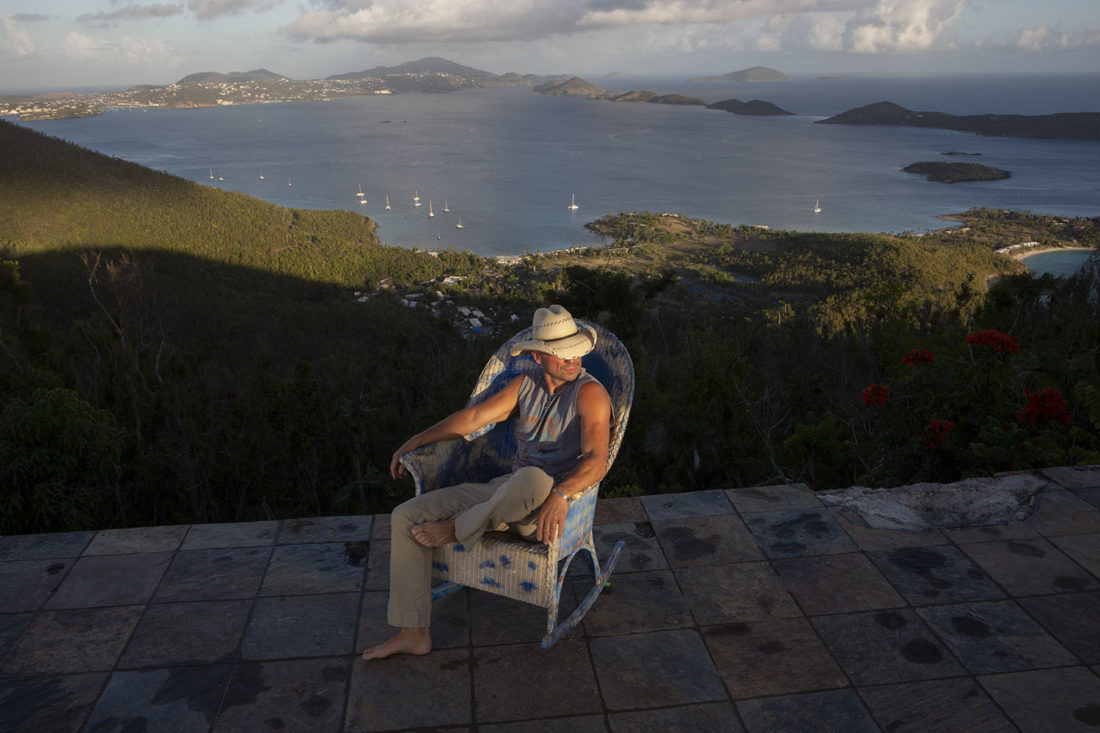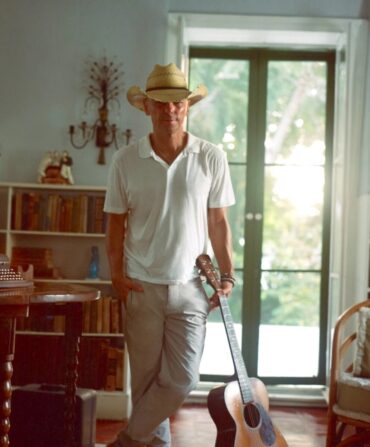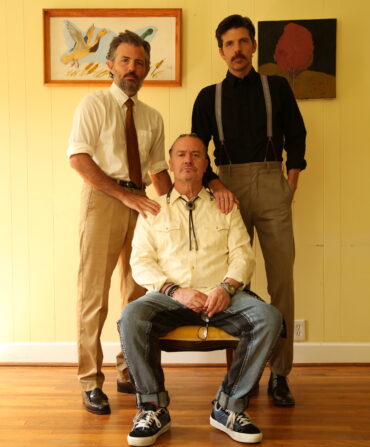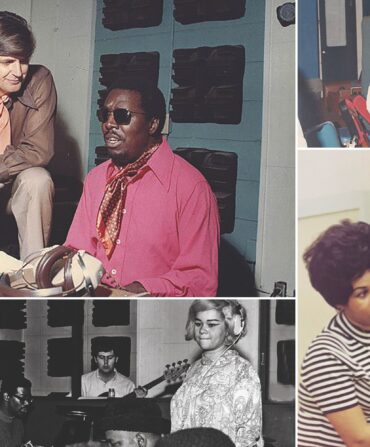In the world of country music, Kenny Chesney is larger than life. The East Tennessee native snagged his first big hit in 1997 with “She’s Got It All,” maintains a fiercely loyal fan base (dubbed “No Shoes Nation”), regularly headlines stadium shows, and recently set the Country Airplay Chart record with his thirtieth number-one single, “Get Along.” Lately though, the singer, songwriter, and entertainer has added a new title to the list: humanitarian.
When Hurricane Irma began to pummel the Caribbean last September, Chesney grappled with the unknown as he waited for news about a community he’d come to cherish. Chesney had purchased a home in St. John, U.S. Virgin Islands, in the early 2000s; known to locals as “Love City,” St. John welcomed him between recording sessions and gigs. So as the storm swept over the island, he channeled his fears into the studio in Nashville, where he wrote and recorded two songs: “Love for Love City” and “Song for the Saints.”
“I wanted the people on the islands to know we were thinking of them, but also that we were going to be there for them,” Chesney says. Before the full scope of the devastation was even determined, Chesney created the Love for Love City Foundation, a non-profit that has since delivered food, water, medical supplies, children’s textbooks, and more to help the U.S. and British Virgin Islands rebuild in the wake of Irma and Maria, which followed less than two weeks later.
Today, Chesney continues to honor that mission with a new album, Songs for the Saints (out this Friday), with 100 percent of its proceeds going to the foundation’s continued hurricane-relief efforts. “It’s going to take years to get the Saints close to where they were, to make the electric grid more modern, to rebuild so the people have a quality of life like before.”
Garden & Gun caught up with Chesney to talk about the new music, the work his foundation is doing, and why the islands will always have a special place in his heart. Read the interview and watch a video with Chesney—filmed in the spot where his St. John home once stood—below.
You’ve made a home in St. John, but you’re from East Tennessee. What makes a place “home” for you?
The people, really, and the pace. Where I come from, people know your name, and they’re happy to see you. They ask how your family is, and if you’re in trouble, they’ll help you without thinking about what’s in it for them. As I was coming into my own as an artist, really finding my voice, the folks in St. John just saw me as Kenny. A lot of them knew me for years before they ever saw me play anywhere but on a barstool for a few tourists. To have a place where I can disappear and be the way I was raised, it really let me stay connected to the roots of who I am when things started taking off.
Ziggy Marley sings on “Love for Love City,” a song you wrote while waiting for news out of St. John after last fall’s hurricanes. How did the collaboration come about?”
Ziggy’s music, and obviously his father’s music, have been part of the fiber of my life in the islands even before my life there really began. It’s all love, and being righteous in a good way, taking care of your family and friends. So when we were doing playback, I just heard his voice on the track, his spirit in the song. We sent it over to where he was, and he listened, and he said yes. I am so honored that he agreed to be a part of such a key song on the record.
Jimmy Buffett sings on the album, too, in your rendition of his song “Trying to Reason with Hurricane Season.” What drew you to that number?
When it all was coming down, a very good friend who loves music emailed me the YouTube link, with a note: “Now you really know how Jimmy Buffett feels.” And that song, written in the early ’70s, really captures the inevitability of the weather, and the dread tempered with a kind of pirate bravado. You can’t admit you’re scared, but you know it’s heavy—and it all hangs out there, with you powerless. You can’t hurry it up or send it away. You can only wait, and then ride it out. That line, “Storms out on the ocean…,” that’s the whole deal. Jimmy Buffett is so much more than ‘Margaritaville’ suggests. Sure, it’s a big hit. But he’s a poet who captured a time in Key West when people lived just beyond the law.
You talk in this video clip about how Songs for the Saints was recorded amidst the “chaos.” Tell me about that.
Songs for the Saints was recorded during the chaos of the storms hitting. I would be in the studio, never knowing whether to look at my phone or not for hope and fear that I’d have word from friends who were riding it out all over the islands. I’d be doing vocals, then come home to a house filled with a planeload of friends who had been evacuated. To see that exhaustion, fear, confusion, even sadness or shock in their eyes, it was awful. They knew their life there had been blown completely away. I took all that to the studio every single day. How can you not? It’s beyond words.
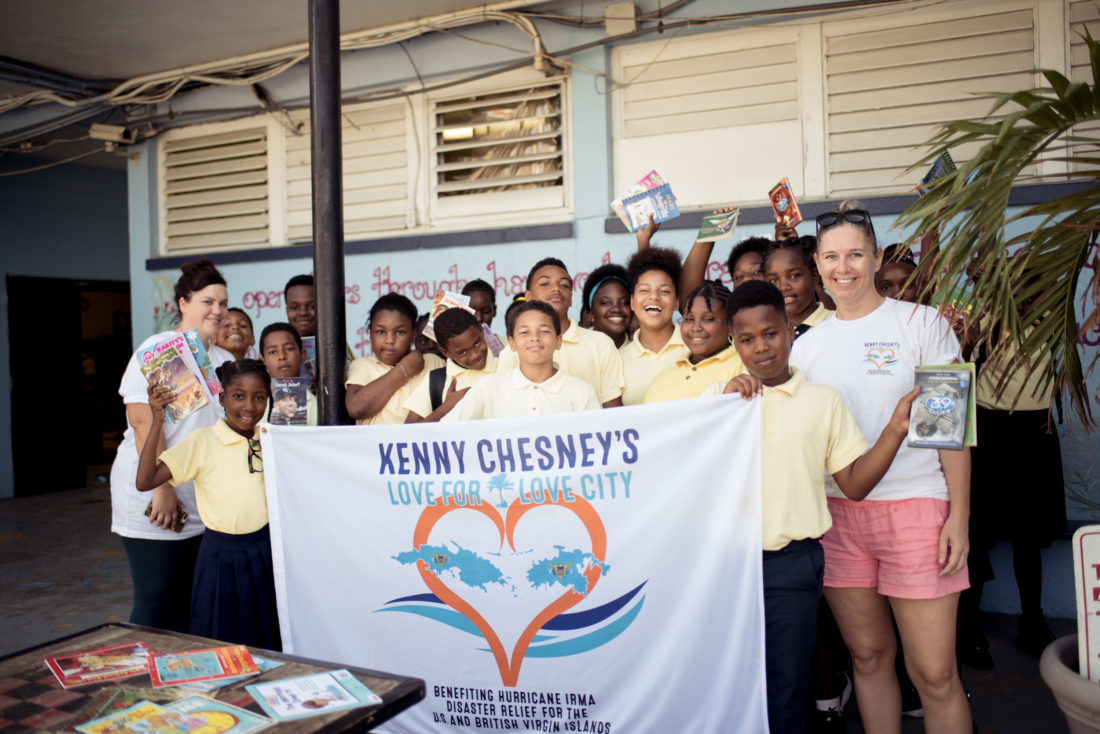
Photo: Anne Bequette, STJ Creative Photography
Schoolchildren in St. John receive books from the Love for Love City Foundation.
Starting out, what was your vision for the Love for Love City Foundation?
When I finally got there—because getting planes in was almost impossible, even as a humanitarian effort—I was stunned. This lush green island had had all the plants ripped out by the winds. Most of the buildings were gone, or maybe a retaining wall was left. But I also saw all kinds of hope, all kinds of people digging in and clearing roads. They were setting up stations for water, trying to help the people on the island have cover and food so they could start the work of rebuilding the island. [The vision for the foundation] was just about what was needed: How do we help? What can we do? Initially, it was getting generators in there, water, tools, tarps, medical supplies, food. It was getting people off island, whether they were pregnant, needing medical care, or elderly. I had friends who left in order to not use up the few resources there were. But [the foundation] was also about hope, about showing the world how special the people of these islands are. They found ways to be joyous.
How have your fans around the world connected with what you’re doing in the islands, and how can they help now?
They’ve donated like crazy—over seven figures, and the donations keep coming. That’s the best thing they can do, because the need isn’t slowing down.
Songs for the Saints is set for release on July 27. All proceeds from the album will go toward rebuilding in the US and British Virgin Islands.


